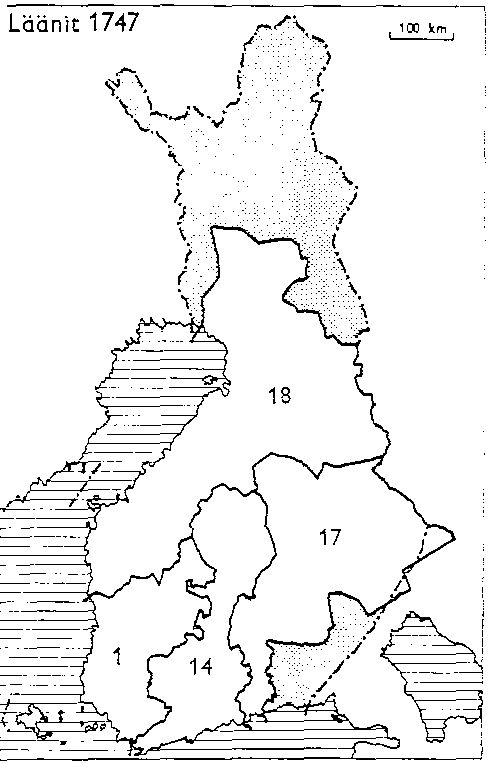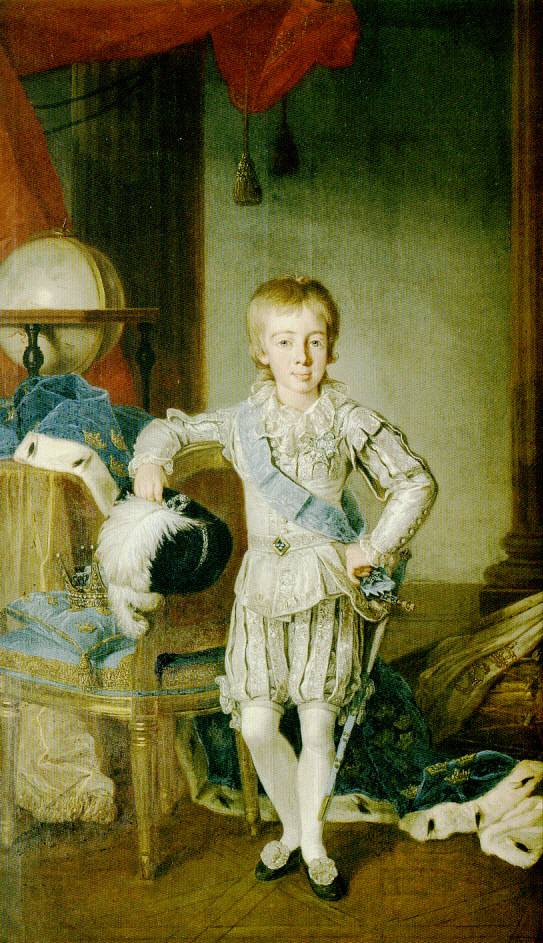|
Kymmenegård County
Kymmenegård County ( sv, Kymmenegårds län, fi, Kymenkartanon lääni) was a county of Sweden 1775-1809 and province of Grand Duchy of Finland 1809-1831. The county was created in 1775 by dividing the Savolax and Kymmenegård County ( sv, Savolax och Kymmenegårds län, fi, Savonlinnan ja Kymenkartanon lääni) into two parts: Savolax and Karelia County and Kymmenegård County. Residence city was Heinola. By the Treaty of Fredrikshamn in 1809 Sweden ceded all its territories in Finland, east of the Torne River, to Russia. Kymmenegård Province was succeeded in 1831 by the Mikkeli Province in the autonomic Grand Duchy of Finland The Grand Duchy of Finland ( fi, Suomen suuriruhtinaskunta; sv, Storfurstendömet Finland; russian: Великое княжество Финляндское, , all of which literally translate as Grand Principality of Finland) was the predecess .... Minor parts of province were merged to Uusimaa Province. Maps Governors * Gustaf Ridder ... [...More Info...] [...Related Items...] OR: [Wikipedia] [Google] [Baidu] |
Kingdom Of Sweden (1721–1809)
The History of Sweden from 1772 through 1809 is better known as the Gustavian era of Kings Gustav III and Gustav IV, as well as the reign of King Charles XIII of Sweden. Gustav III Adolf Frederick of Sweden died on 12 February 1771. The elections afterward resulted in a partial victory for the Caps party, especially among the lower orders; but in the estate of the peasantry the Caps majority was merely nominal, while the mass of the nobility was dead against them. Nothing could be done, however, till the return of the new king, Gustav III, from Paris. Coronation oath The new coronation oath contained three revolutionary clauses: #The first aimed at making abdications in the future impossible by binding the king to reign uninterruptedly. #The second obliged him to abide, not by the decision of all the estates together, as heretofore, but by that of the majority only, with the view of enabling the actually dominant lower estates (in which there was a large Cap majority) to ... [...More Info...] [...Related Items...] OR: [Wikipedia] [Google] [Baidu] |
Finnish Counties 1831
Finnish may refer to: * Something or someone from, or related to Finland * Culture of Finland * Finnish people or Finns, the primary ethnic group in Finland * Finnish language, the national language of the Finnish people * Finnish cuisine See also * Finish (other) * Finland (other) * Suomi (other) Suomi means ''Finland'' in Finnish. It may also refer to: *Finnish language * Suomi (surname) * Suomi, Minnesota, an unincorporated community * Suomi College, in Hancock, Michigan, now referred to as Finlandia University * Suomi Island, Western ... * {{disambiguation Language and nationality disambiguation pages ... [...More Info...] [...Related Items...] OR: [Wikipedia] [Google] [Baidu] |
Abraham Joakim Molander
Abraham, ; ar, , , name=, group= (originally Abram) is the common Hebrew patriarch of the Abrahamic religions, including Judaism, Christianity, and Islam. In Judaism, he is the founding father of the special relationship between the Jews and God; in Christianity, he is the spiritual progenitor of all believers, whether Jewish or non-Jewish; and in Islam, he is a link in the chain of Islamic prophets that begins with Adam (see Adam in Islam) and culminates in Muhammad. His life, told in the narrative of the Book of Genesis, revolves around the themes of posterity and land. Abraham is called by God to leave the house of his father Terah and settle in the land of Canaan, which God now promises to Abraham and his progeny. This promise is subsequently inherited by Isaac, Abraham's son by his wife Sarah, while Isaac's half-brother Ishmael is also promised that he will be the founder of a great nation. Abraham purchases a tomb (the Cave of the Patriarchs) at Hebron to be Sa ... [...More Info...] [...Related Items...] OR: [Wikipedia] [Google] [Baidu] |
Adolf Broberg
Adolf (also spelt Adolph or Adolphe, Adolfo and when Latinised Adolphus) is a given name used in German-speaking countries, Scandinavia, the Netherlands and Flanders, France, Italy, Spain, Portugal, Latin America and to a lesser extent in various Central European and East European countries with non-Germanic languages, such as Lithuanian Adolfas and Latvian Ādolfs. Adolphus can also appear as a surname, as in John Adolphus, the English historian. The female forms Adolphine and Adolpha are far more rare than the male names. The name is a compound derived from the Old High German ''Athalwolf'' (or ''Hadulf''), a composition of ''athal'', or ''adal'', meaning "noble" (or '' had(u)''-, meaning "battle, combat"), and ''wolf''. The name is cognate to the Anglo-Saxon name '' Æthelwulf'' (also Eadulf or Eadwulf). The name can also be derived from the ancient Germanic elements "Wald" meaning "power", "brightness" and wolf (Waldwulf). Due to negative associations with Adolf Hitle ... [...More Info...] [...Related Items...] OR: [Wikipedia] [Google] [Baidu] |
Anders Gustaf Langenskiöld
Anders is a male name in Scandinavian languages and Fering North Frisian, an equivalent of the Greek Andreas ("manly") and the English Andrew. It originated from Andres via metathesis. In Sweden, Anders has been one of the most common names for many centuries, earliest attested in 1378. It was common for priests and farmers during medieval times. According to Statistics Sweden, as of 31 December 2002 it ranks 4th among the male names. The great frequency of this name at the point in time (around 1900) when patronymics were converted into family names is the reason why 1 out of every 30 Swedes today is called Andersson. The name day of Anders in the Scandinavian calendar is 30 November, and in the old peasant superstition that day was important for determining what the Christmas weather would be. If it was very cold on 30 November there would be much sleet on Christmas (and vice versa). In Denmark Donald Duck's name is ''Anders And''. The Fering name Anders may have been b ... [...More Info...] [...Related Items...] OR: [Wikipedia] [Google] [Baidu] |
Fredrik Adolf Jägerhorn
Fredrik is a masculine Germanic given name derived from the German name ''Friedrich'' or Friederich, from the Old High German ''fridu'' meaning "peace" and ''rîhhi'' meaning "ruler" or "power". It is the common form of Frederick in Norway, Finland and Sweden. The name means "peaceful ruler" The most common variant spelling of this name is Frederik which is used in Denmark, although the English spelling Frederick is more common than either. Fredrik replaced the Anglo-Saxon name Freodheric, and has been a rare first name in England since this time. In Sweden, Fredrik first fell into usage in the 14th century, and became increasingly common after the 18th century. It is the 19th most popular male name in Sweden and the 41st most popular in Norway. |
Johan Herman Lode
Johan * Johan (given name) * ''Johan'' (film), a 1921 Swedish film directed by Mauritz Stiller * Johan (band), a Dutch pop-group ** ''Johan'' (album), a 1996 album by the group * Johan Peninsula, Ellesmere Island, Nunavut, Canada * Jo-Han Jo-Han was a manufacturer of plastic scale promotional model cars and kits originally based in Detroit. The company was founded in 1947 by tool and die maker John Hanley a year before West Gallogly's competing company AMT was formed and about th ..., a manufacturer of plastic scale model kits See also * John (name) {{disambiguation ... [...More Info...] [...Related Items...] OR: [Wikipedia] [Google] [Baidu] |
Herman Af Låstbom
Herman may refer to: People * Herman (name), list of people with this name * Saint Herman (other) * Peter Noone (born 1947), known by the mononym Herman Places in the United States * Herman, Arkansas * Herman, Michigan * Herman, Minnesota * Herman, Nebraska * Herman, Pennsylvania * Herman, Dodge County, Wisconsin * Herman, Shawano County, Wisconsin * Herman, Sheboygan County, Wisconsin Place in India * Herman (Village) Other uses * ''Herman'' (comic strip) * ''Herman'' (film), a 1990 Norwegian film * Herman the Bull, a bull used for genetic experiments in the controversial lactoferrin project of GenePharming, Netherlands * Herman the Clown ( fi, Pelle Hermanni), a Finnish TV clown from children's TV show performed by Veijo Pasanen * Herman's Hermits, a British pop combo * Herman cake (also called Hermann), a type of sourdough bread starter or Amish Friendship Bread starter * ''Herman'' (album) by 't Hof Van Commerce See also * Hermann (other) * Arman (na ... [...More Info...] [...Related Items...] OR: [Wikipedia] [Google] [Baidu] |
Otto Wilhelm Ramsay
Otto is a masculine German given name and a surname. It originates as an Old High German short form (variants ''Audo'', ''Odo'', '' Udo'') of Germanic names beginning in ''aud-'', an element meaning "wealth, prosperity". The name is recorded from the 7th century ( Odo, son of Uro, courtier of Sigebert III). It was the name of three 10th-century German kings, the first of whom was Otto I the Great, the first Holy Roman Emperor, founder of the Ottonian dynasty. The Gothic form of the prefix was ''auda-'' (as in e.g. '' Audaþius''), the Anglo-Saxon form was ''ead-'' (as in e.g. ''Eadmund''), and the Old Norse form was '' auð-''. The given name Otis arose from an English surname, which was in turn derived from ''Ode'', a variant form of ''Odo, Otto''. Due to Otto von Bismarck, the given name ''Otto'' was strongly associated with the German Empire in the later 19th century. It was comparatively frequently given in the United States (presumably in German American families) d ... [...More Info...] [...Related Items...] OR: [Wikipedia] [Google] [Baidu] |
Robert Wilhelm De Geer Af Tervik
The name Robert is an ancient Germanic given name, from Proto-Germanic "fame" and "bright" (''Hrōþiberhtaz''). Compare Old Dutch ''Robrecht'' and Old High German ''Hrodebert'' (a compound of '' Hruod'' ( non, Hróðr) "fame, glory, honour, praise, renown" and ''berht'' "bright, light, shining"). It is the second most frequently used given name of ancient Germanic origin. It is also in use as a surname. Another commonly used form of the name is Rupert. After becoming widely used in Continental Europe it entered England in its Old French form ''Robert'', where an Old English cognate form (''Hrēodbēorht'', ''Hrodberht'', ''Hrēodbēorð'', ''Hrœdbœrð'', ''Hrœdberð'', ''Hrōðberχtŕ'') had existed before the Norman Conquest. The feminine version is Roberta. The Italian, Portuguese, and Spanish form is Roberto. Robert is also a common name in many Germanic languages, including English, German, Dutch, Norwegian, Swedish, Scots, Danish, and Icelandic. It can be u ... [...More Info...] [...Related Items...] OR: [Wikipedia] [Google] [Baidu] |
Gustaf Riddercreutz
Gustav, Gustaf or Gustave may refer to: *Gustav (name), a male given name of Old Swedish origin Art, entertainment, and media * ''Primeval'' (film), a 2007 American horror film * ''Gustav'' (film series), a Hungarian series of animated short cartoons * Gustav (''Zoids''), a transportation mecha in the ''Zoids'' fictional universe *Gustav, a character in ''Sesamstraße'' *Monsieur Gustav H., a leading character in ''The Grand Budapest Hotel'' Weapons *Carl Gustav recoilless rifle, dubbed "the Gustav" by US soldiers *Schwerer Gustav, 800-mm German siege cannon used during World War II Other uses *Gustav (pigeon), a pigeon of the RAF pigeon service in WWII *Gustave (crocodile), a large male Nile crocodile in Burundi *Gustave, South Dakota *Hurricane Gustav (other), a name used for several tropical cyclones and storms *Gustav, a streetwear clothing brand See also *Gustav of Sweden (other) *Gustav Adolf (other) *Gustave Eiffel (other) * * *Gustavo ... [...More Info...] [...Related Items...] OR: [Wikipedia] [Google] [Baidu] |


.jpg)